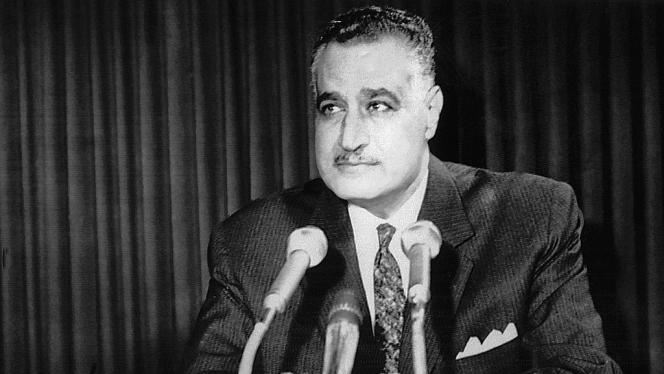Tuesday 22 October 2024
How Radio Cairo made waves in Somalia

In the 1950s, Egyptian broadcasts encouraged Somalis to unite against imperialism – but their rhetoric also deepened political divides.
In the Somali territories, the struggle against imperialism was also a competition for influence. As parties like the Somali Youth League and Somali National League campaigned for independence, radical newspapers and magazines emerged to attack colonial rule and build support for their own causes. Over time, however, nationalist activists also began to turn to international radio broadcasts to promote their ideas and undermine their political rivals. One particularly influential voice was Radio Cairo, the Egyptian state broadcaster, which began creating programmes for the region in Somali and Arabic. These radical broadcasts gave Somali announcers an opportunity to shape the struggle for independence – but they also fuelled deep rivalries within the nationalist movement.
Radio Cairo made its first broadcasts in Somali in 1954, two years after the coup which toppled the Egyptian monarchy and installed a progressive military regime. As the Trust Territory of Somaliland held its first municipal elections, these experimental programmes were designed to give free publicity to socialist parties and publicise Egyptian support for Somali nationalism. While these initial programmes were abandoned, Egyptian officials remained interested in supporting anti-colonial broadcasts which could undermine their British, French and Ethiopian rivals. Hiring from Egypt’s large population of students from the Horn of Africa, Radio Cairo began occasional broadcasts in Somali in 1956 and a daily Somali service in 1957.
These broadcasts were strongly influenced by their first announcer, the radical nationalist Haaji Muhammad Hussein. Like many Radio Cairo announcers, Hussein was a significant political figure in his own right. In 1943, he had been a founding member of the nationalist Somali Youth Club and in 1947 was elected as president of the newly founded Somali Youth League before moving to Cairo to study at al-Azhar University. At Radio Cairo, Hussein became a powerful voice for anti-colonial nationalism, rejecting attempts to “delay the independence of African countries”. He encouraged Radio Cairo to support the League’s plans for a Greater Somalia, denouncing the occupation of Ogaden as an unjust form of “Ethiopian imperialism”. Broadcasts also attacked moderate nationalists in Somalia, claiming that any compromise with the colonial powers would result in a ‘Lesser Somalia’ unable to fend for itself on the world stage.
Other presenters followed Hussein’s lead, denouncing Ethiopians as “black imperialists” and urging Somalis to turn their backs on “lackeys of imperialism”. However, they also used other tactics to make the case for independence. Broadcasters like the politician Ahmad Sheikh Musa made frequent appeals to Islamic scripture, arguing that it was “the part of jihad to awaken the people, to warn the people against imperialism […] and to call on the people to work together.” Others used wordplay and humour: in one broadcast on Djibouti, for example, announcer Muhammad Sharif Mahmud pointed out the similarity between the name of President De Gaulle and the Arabic word dajjal, meaning “deceiver”, also a reference to the Islamic corollary of the antichrist. Others produced radio plays which dramatised the birth of the Dervish movement and imagined a future Somalia which was free from imperial rule. The idea of a mass movement against colonial rule was the most common theme. As one character explained to his British captors: “You can arrest and imprison whom you please, but you cannot today stop our people achieving what they want. You could do so only if you could imprison all Somalis – that is, if you can find a prison large enough to hold them.”
This anti-colonial language proved popular, and Radio Cairo soon attracted audiences across the Somali territories. It also earned listeners across the diaspora, and announcers in Cairo began reading letters from Ghana, Uganda, Ethiopia, Saudi Arabia and the United Kingdom. The service’s nationalist themes were welcomed by Somali communities in Kenya, where they helped to revive the Somali Youth League and build support for integration of the Northeastern Province into Somalia after independence. Radio Cairo also began to intimidate the British colonial authorities, who claimed that Egyptian broadcasts were producing “offensive [and] grossly distorted accounts of events” which were causing “considerable political harm” across their territories.
In response, the BBC began its own direct broadcasts in Somali in July 1957. With Colonial Office support, the new service aimed to supply material for Somalia’s colonial radio stations and, by doing so, “counteract the effects of Radio Cairo”. Propaganda units like the Information Research Department also began producing colonial publicity and planting it in newspapers and radio services across the region. However, these initiatives did little to contain Radio Cairo’s growing popularity. Ten days after the inauguration of the BBC Somali Service, Haaji Muhammad Hussein was elected president of the Somali Youth League, cementing his influence on the nationalist movement.
Ultimately, however, Hussein’s election proved controversial. His attacks on moderate nationalists had not been forgotten by the other leaders of the Somali Youth League, and on his return to Mogadishu he was accused of “engaging in political activity characterised by bitter and violent propaganda’ and encouraging ‘acts of intimidation against the party’s own congress.” He was expelled from the Somali Youth League in May 1958, forming the Greater Somali League but never recaptured his earlier popularity. In the same year, the Somali Prime minister Abdullahi Issa privately praised the BBC as “the only international broadcasting authority capable of attracting listeners away from Cairo”.
After its meteoric rise, the popularity of Radio Cairo’s Somali Service slowly began to decline. Some criticised the broadcasts as Egyptian propaganda – Hussein had certainly argued that Somalis should accept the “guidance of Arab and Asian countries” and other announcers praised Egypt for its generous aid to “its brothers in Africa”. One broadcast had even claimed that Somalia had been ruled from Cairo prior to European colonisation, alleging that Egypt had been “primarily responsible for progress and the establishment of a good government” in the region. Others claimed that Radio Cairo had become less relevant as political independence approached. In July 1959, the British Foreign Office concluded that programmes were still popular with anti-colonial activists, who already agreed with its claims about imperial rule, but were “not considered to be having any lasting influence on Somali thinking”.
This decline continued after Somali independence in 1960. Radio Cairo faced new competition from Ethiopia and the Soviet Union, who both created Somali-language services to try and influence politics in the new state. The construction of new radio transmitters in Hargeisa and Mogadishu – the first financed by the British, the second by the Soviets – also allowed independent Somalia to emerge as an international broadcaster in its own right. By 1964, Radio Mogadishu was broadcasting revolutionary songs to Somalis in Kenya, instructing listeners to “defend your land [and] take up arms for it’ and ‘remove the blockades imposed upon our brothers”. The service also began broadcasting to Ethiopia in Amharic, producing plays about the mistreatment of soldiers to encourage soldiers to defect from the national army. In this delicate political context, Radio Cairo decided to play a more limited role. The service continued to play liberation songs, urging Somalis to take up arms against Ethiopia and “chase [the Ethiopians] away from your country”. Overall, however, it also began to focus its attention on training Somali technicians and announcers who Egyptian officials hoped would form the next generation of Somali broadcasters.
Today, as Egypt reinvests in Somali broadcasting as part of a new campaign of public diplomacy, the legacy of these early programmes seems particularly relevant. In the final years of colonial rule, Radio Cairo provided a space for radical forms of Somali nationalism. Through diverse broadcasts ranging from political talks to religious commentaries and radio plays, Somali announcers attacked imperial rule and attracted audiences from across the world. However, this activism did not always result in political change. Radio Cairo became popular with radical nationalists, raising the profile of figures like Haaji Muhammad Hussein, but it did little to convince the unconvinced. Ultimately, broadcasts suffered from the perception that they were Egyptian propaganda and struggled to cope with the pace of political change in Somalia. Nevertheless, they deserve recognition for their unusual role in the struggle for Somali independence. Through their work at Radio Cairo, nationalist broadcasters gave shape and voice to the anti-colonial struggle long before the creation of the Somali state.







